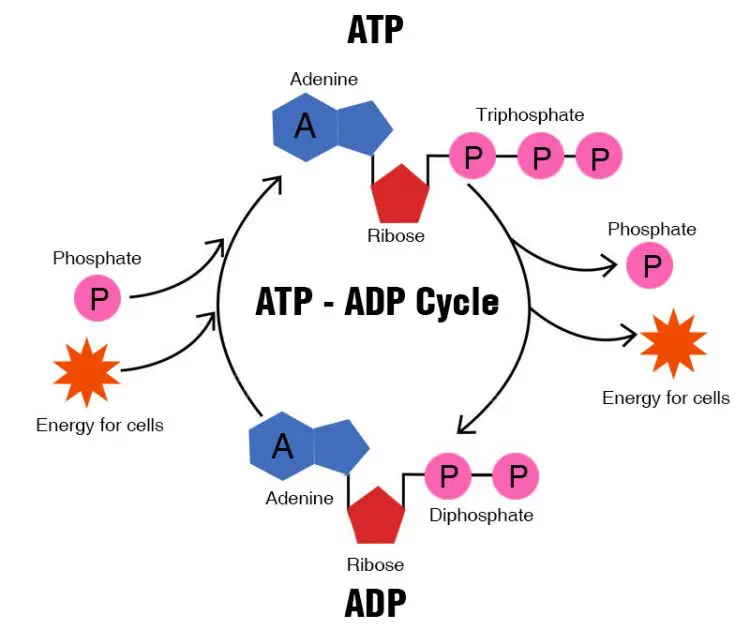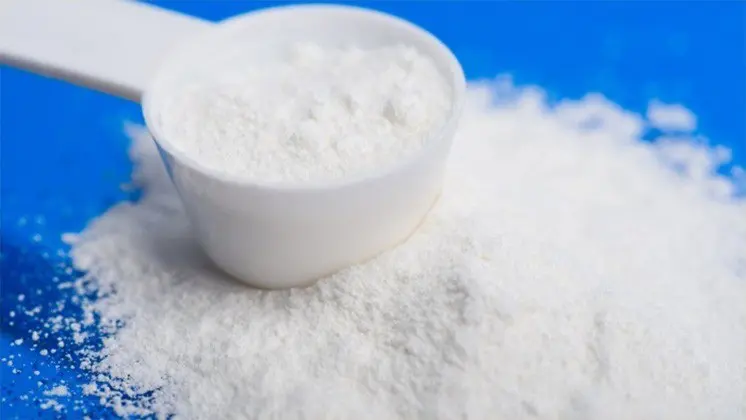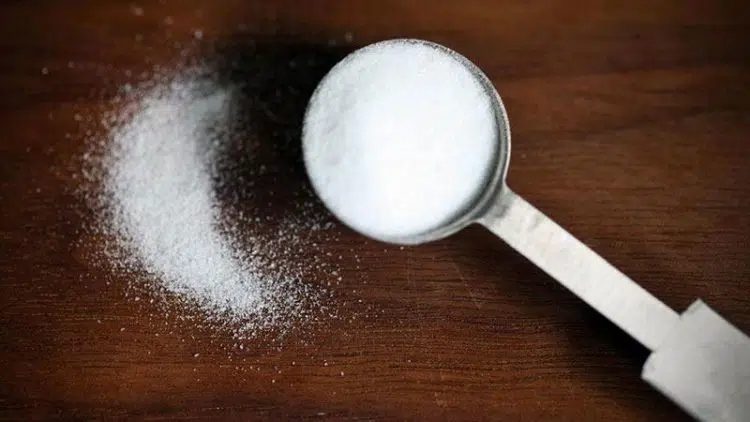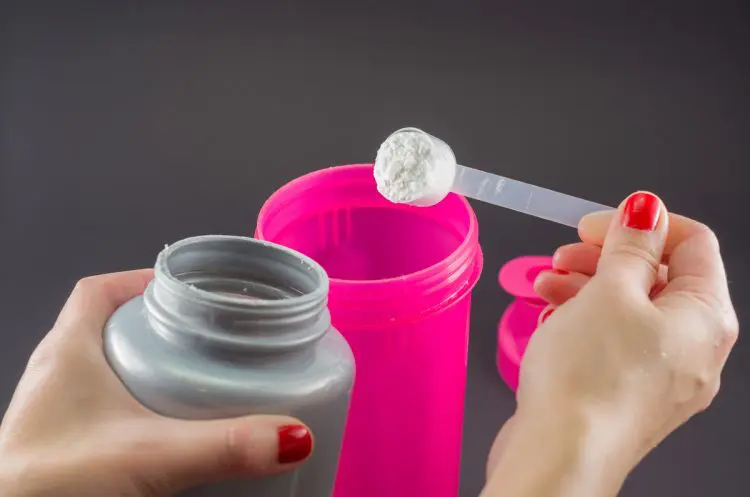Whatever your training goal is, you’re going to have to work for it. Even easy-gaining mesomorphs have to work hard to build muscle. Determination, dedication, and perspiration are crucial for getting fitter, stronger, leaner, or more muscular.
Ultimately, your body is very resistant to change and would prefer to stay as it is. To sculpt your muscles or get lean, you literally have to bully your body with intense, consistent workouts.
As well as paying your dues in the gym, you need to support your workouts with plenty of rest and a nutritious diet. After all, it’s only when you rest and sleep that your body recovers from your workouts, and the food you eat provides the energy and nutrients necessary for repair and recovery.
In straightforward terms, if you don’t train hard, eat well, and get plenty of rest, your progress will be slow at best and non-existent at worst.
But, if you’ve got these bases covered, there are other things you can do to enhance your progress – sports supplements being one of the most obvious.
Sports supplements are best thought of as effort multipliers – the harder YOU work, the more helpful THEY become. Beneficial supplements include whey protein, ZMA, glutamine, branched-chain amino acids, pre-workout, and mass gainers.
Level Up Your Fitness: Join our 💪 strong community in Fitness Volt Newsletter. Get daily inspiration, expert-backed workouts, nutrition tips, the latest in strength sports, and the support you need to reach your goals. Subscribe for free!
One of the most effective and popular supplements on the planet is creatine. It’s been around for almost four decades, which is a good indicator that it really works. If you are looking to enhance your progress, creatine can definitely help.
But, should you use creatine monohydrate or creatine HCL?
In this article, we put these two popular creatine supplements to the test and reveal the benefits and drawbacks of each one.
What is Creatine?

Contrary to what some people may think, creatine is NOT a steroid. It’s actually a naturally occurring substance made within your muscles from two amino acids – glycine and arginine. Not only does your body make creatine, but it’s also present in most animal proteins, i.e., meat, poultry, and fish. Taking supplemental creatine increases the amount of creatine in your muscles, and that can be very beneficial.
Your body needs food for energy. However, carbohydrates, fats, and proteins are all eventually converted into a universal source of fuel called adenosine triphosphate, ATP for short.
When broken down by an enzyme called ATPase, ATP releases a burst of energy and becomes adenosine phosphate or ADP. ADP does not contain any useable energy and needs to be turned back into ATP to be useful.
Creatine phosphate (CP) gives up a phosphate molecule to turn ADP back into ATP, but your stores of CP are pretty limited. Creatine supplementation helps increase your CP stores. Using creatine means you are better at turning ADP into ATP, which delays fatigue and increases energy and recovery (1).

Creatine Benefits and Drawbacks
Creatine has been in use for close to 40 years. This is probably the best indicator that it actually works. After all, people quickly stop buying supplements that do not produce results. Creatine has also been the subject of a huge number of studies.
The benefits of creatine use include:
- Longer, more intense workouts
- Enhanced muscle repair and growth
- Increased muscle size
- Increased strength
- Increased testosterone and growth hormone production
- Increased fat burning
- Less muscle catabolism (breakdown)
- Lower, more stable blood glucose
Creatine isn’t just good for exercise performance; it has several health benefits too, including:
- Reduced risk of certain brain diseases, including Alzheimer’s and Parkinson’s
- Better cognitive brain function
- Less age-related muscle loss (sarcopenia)
- Stronger bones
- Better heart health
- Treatment and prevention of non-fatty liver disease
Creatine drawbacks

For most people, creatine is hugely beneficial and very safe to use. However, there are a few drawbacks to consider, including:
- Bloating
- Water retention
- Stomach upsets
- Muscle cramps
However, creatine does NOT have a negative effect on the kidneys and isn’t addictive. Nor will creatine trigger increased aggression. These are creatine myths. Even in large doses, taken for years at a time, creatine has been shown to be very safe (2).
Read more about the benefits and drawbacks in our article Is Creatine Bad For You?
Creatine Monohydrate 101
When creatine was first introduced, the only type available was creatine monohydrate. Most of the studies done on creatine use this creatine variation. Again and again, creatine monohydrate has proven itself to be a valuable and safe supplement.

But what IS creatine monohydrate?
Creatine monohydrate is a crystalline powder made by combining a creatine molecule with a single water molecule, so monohydrate means one water. This form of creatine is very hydrophilic, which means it loves water. Creatine attracts water, so using it causes a rapid increase in body weight and muscle size.
The main benefits of creatine monohydrate over other types of creatine are:
Cheap
Compared to other types of creatine, monohydrate is cheap and readily available. It’s a proven product that has been shown to be both effective and safe. Other types of creatine are much less studied.
Rapid weight gain
Creatine monohydrate causes water retention, leading to rapid weight gain. That water is mainly held within the muscles, increasing muscle size. More water in your muscles improves leverage, leading to increases in strength.
Level Up Your Fitness: Join our 💪 strong community in Fitness Volt Newsletter. Get daily inspiration, expert-backed workouts, nutrition tips, the latest in strength sports, and the support you need to reach your goals. Subscribe for free!
Reduced joint pain
Water is also drawn into the joints. This may lead to less joint pain, which can be a welcome benefit for some exercisers.
On the downside, using creatine monohydrate does present a few drawbacks, including:
Needs to be loaded
Creatine monohydrate takes time to accumulate in your muscles. Most people follow a loading protocol to speed up this process. To load, users typically take five five-gram doses of monohydrate per day for 5-7 days, and then a maintenance dose of 3-5 grams per day after that.
Water weight gain
While rapid weight gain is an advantage to some users, it isn’t for others. Retaining water in and around your muscles may leave you looking smooth and bloated. The leaner you are, the more noticeable this effect is likely to be.
Cramps
Creatine monohydrate draws water from the outside of muscle cells to the inside, which may cause cramps. Because of this, creatine users may benefit from a potassium supplement and should stay hydrated.
Stomach upsets
A few creatine users experience stomach upsets with creatine monohydrate. This is mainly an issue during the loading phase and should abate when the daily dose is reduced to five grams a day.
Delayed gratification
It will take a week or so for enough creatine to accumulate in your muscles to have much of an effect. This can be disheartening for some people, especially anyone looking for quick, noticeable results.
It’s worth noting that most of these drawbacks can be minimized or avoided by not taking too much creatine. Use our free online creatine calculator to determine how much creatine monohydrate you should use.
Creatine HCL 101
Where creatine monohydrate is creatine bonded to water, creatine HCL is made by combining creatine molecules with hydrochloride. Using hydrochloride instead of water makes creatine much more soluble and easier to absorb. In fact, creatine HCL is 38 times more soluble than regular creatine, making it a much more efficient and effective product (3).

The increased solubility of creatine HCL offers a few advantages over creatine monohydrate, including:
Less bloating
Creatine HCL attracts less water than monohydrate. While water retention can be beneficial for some users, making your muscles bigger, looking smooth, or bloated is a significant drawback for others. Creatine HCL causes much less bloating.
More efficient
Creatine HCL is absorbed as much as 38 times more efficiently and accumulates in your muscles faster. As such, you will feel it working sooner, and there is no need to load HCL as it starts working almost instantly.
Smaller dose
A small amount of creatine HCL goes a long way. Smaller doses mean your purchase of HCL will last longer, and the side effects normally caused by loading are much less common.
While you should always follow the manufacturer’s directions when using any supplement, most creatine HCL products prescribe 1-2 grams per 100 lb. of bodyweight per day. This is less than half the recommended amount of creatine monohydrate.

Fewer gastric upsets
Creatine monohydrates can cause stomach upsets, especially during loading. Unabsorbed creatine monohydrate sits in your intestines and can cause gastric irritation. In contrast, because it is much more soluble, creatine HCL is less likely to cause gastric upsets.
There aren’t many drawbacks to using creatine HCL. In fact, it’s much less likely to cause the unwanted side effects usually linked to creatine use. However, the main downside is the price – creatine HCL is usually 2-3 times more expensive than monohydrate.
But, it’s worth remembering that with no need to load and a smaller daily dose, your purchase of HCL should last longer, so maybe the price difference isn’t actually that significant.
Learn more about Creatine:
- Does Creatine Cause Constipation? (Experts Insights)
- Creatine Side Effects — Unveiling the Truth To Safely Boost Your Gains
- Creatine Before and After: How This Popular Supplement Affects Your Body
- 5 Best Natural Bodybuilding Supplements: Sculpt Your Body Into a Work of Art
- Creatine Pros and Cons: Cracking the Code
- Female Muscle Growth: Unleash Your True Potential
- How Long Until Pre-Workout Kicks In: A Guide to Maximizing The Supplement
- Creatine Powder vs. Pills — Which Should You Get?
Creatine Monohydrate Vs. HCL – Conclusion
Creatine monohydrate and creatine HCL have the same basic effect; they boost your creatine phosphate stores so that you can train harder and longer than usual. The main difference is that HCL is absorbed better, which means it starts working sooner.
If you want to save money, aren’t in a hurry for your creatine to start working, and aren’t bothered about some bloating or water weight gain, tried-and-tested creatine monohydrate is probably your best bet.
However, if you want to cut down on unwanted side effects, would prefer not to go through a week-long loading phase, or want your creatine to start working sooner, HCL is the one you want. However, these advantages come at a price, and HCL is usually 2-3 times more expensive than monohydrate.
Ultimately, both monohydrate and HCL can help you reach your training goals sooner, and it’s really a matter of personal preference as to which one you should use. Experiment with both and see which one you like best.
Remember, though, for any supplement to be effective, you need to pay your dues in the gym, support your workouts with a healthy diet, and get plenty of rest too. Supplements should be an addition to and are not a replacement for hard work!
References:
1 – PubMed: Clinical Pharmacology of The Dietary Supplement Creatine Monohydrate (source)
2 – PubMed: Long-Term Creatine Supplementation Does Not Significantly Affect Clinical Markers of Health in Athletes (source)
3 – PubMed: Physicochemical Characterization of Creatine N-Methyl Guanidinium Salts (source)












